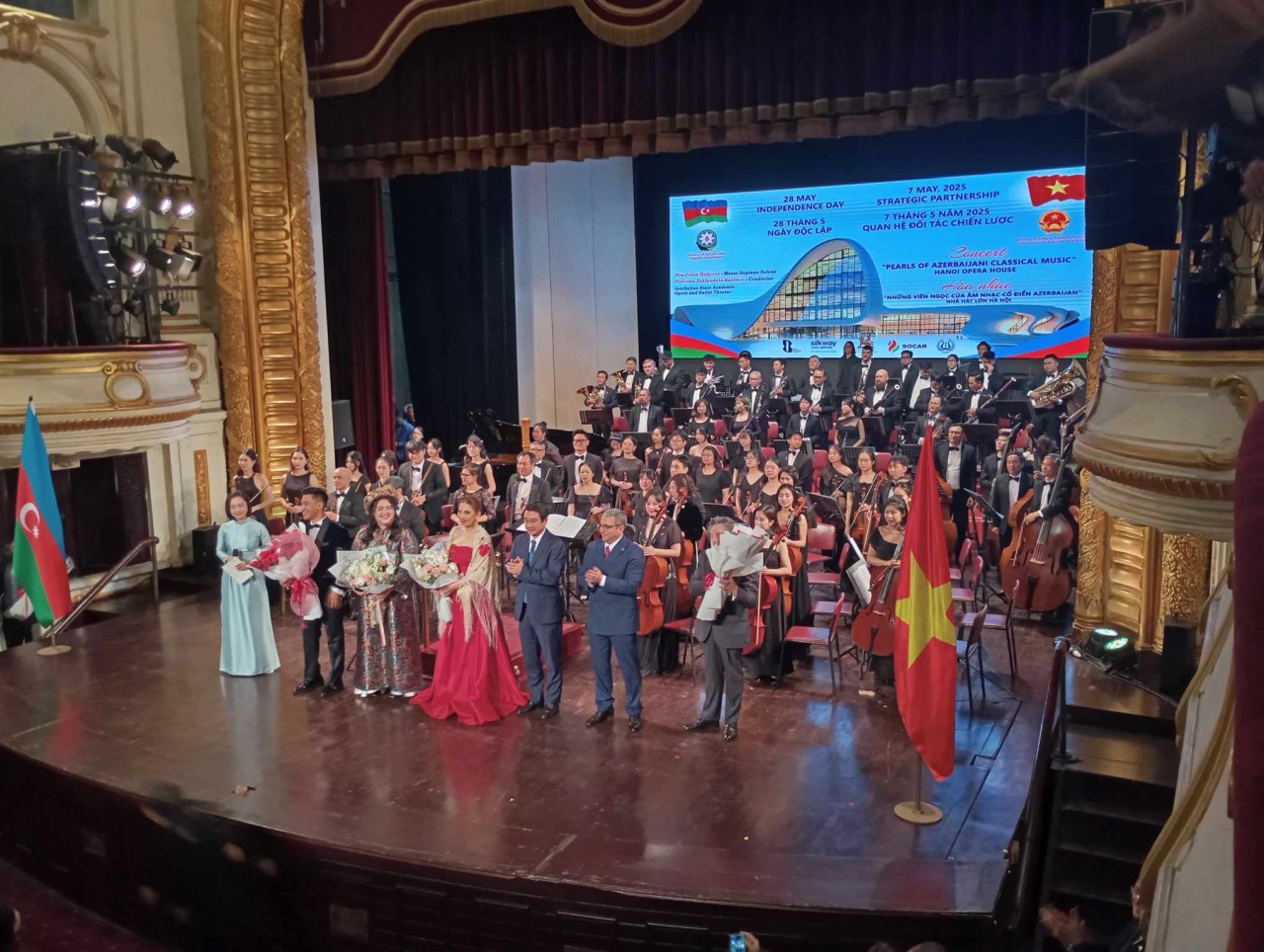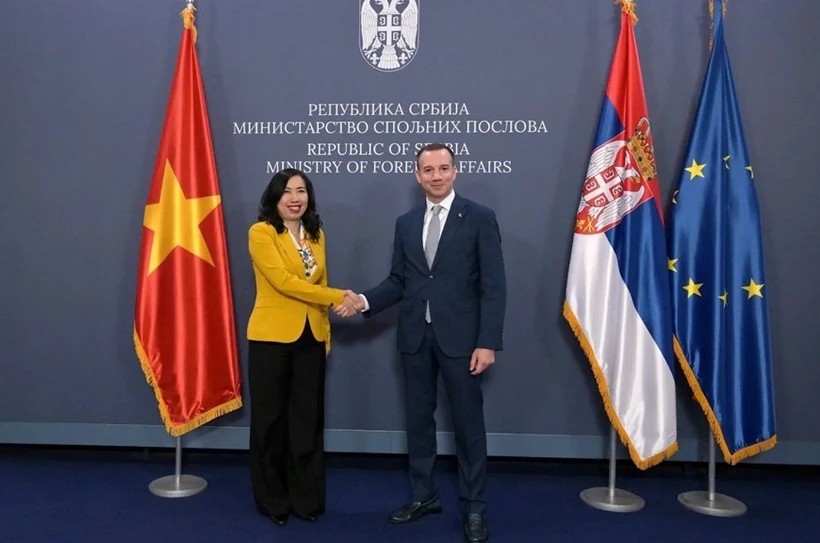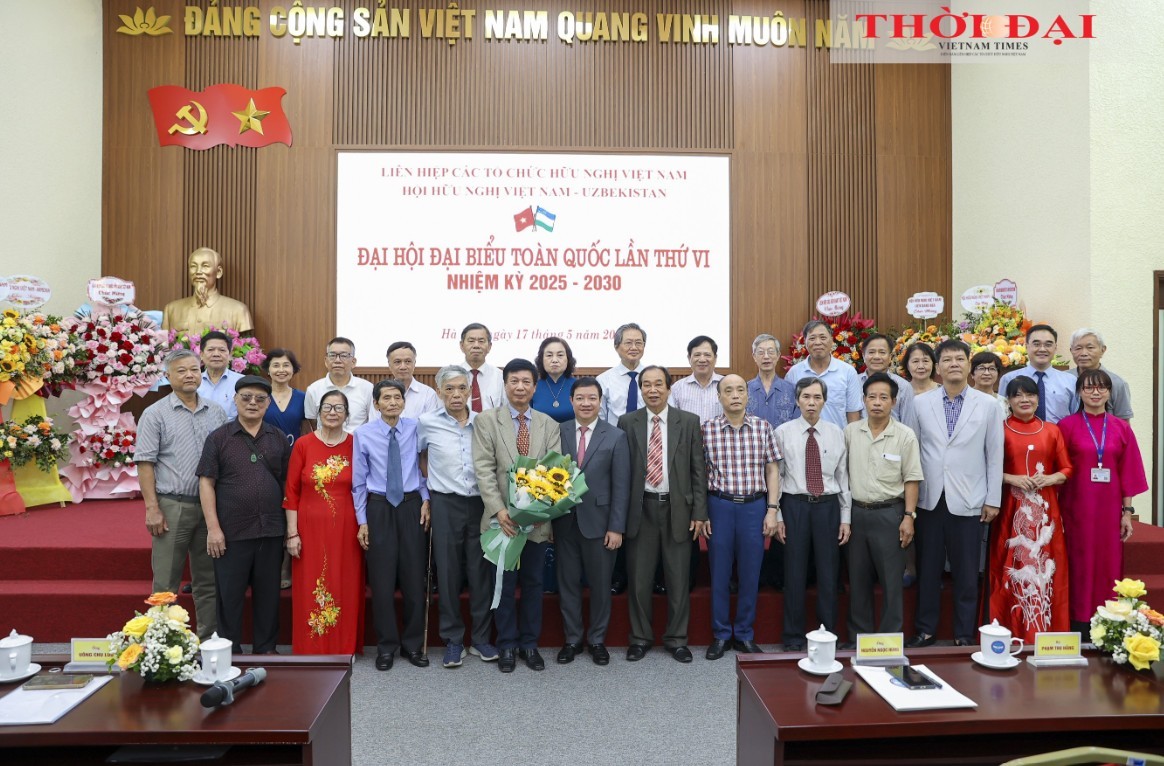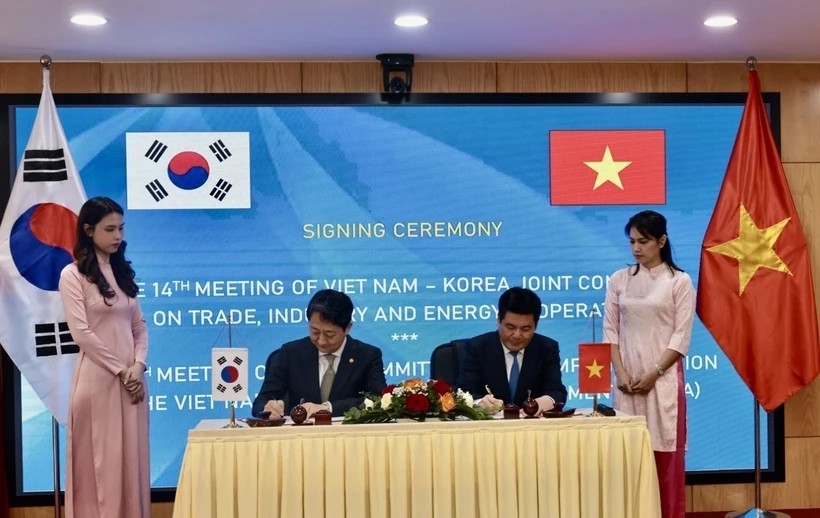Vietnam News Today (Mar. 17): No Medical Isolation Requirements Set for Foreign Arrivals
| Vietnam News Today (Mar. 17) notable headlines Vietnam records 180,558 new Covid-19 cases on March 16 No medical isolation requirements set for foreign arrivals Vietnam calls for dialogues at UNESCO’s session on Ukraine crisis Hanoi lifts 9pm ban on dine-in food, beverage venues Vietnam to build third oil refinery to meet domestic demand Vietnam assumes Chair of ASEAN Education Top legislator pushes for stronger Vietnam – Sierra Leone cooperation Tour operators offer deals as Vietnam eases Covid-19 control measures Two more repatriation flights for Vietnamese expatriates in Ukraine |
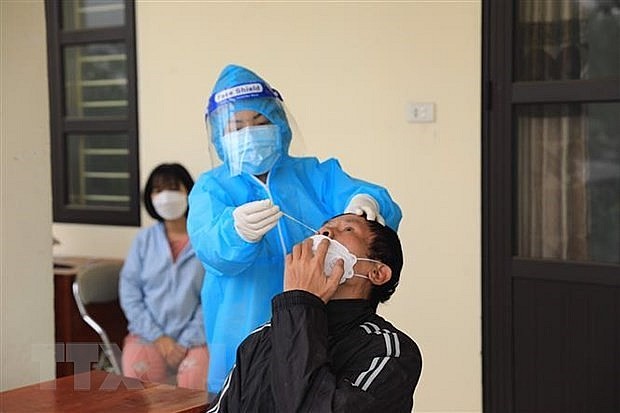 |
| Collecting swab samples for Covid-19 testing. Photo: VNA |
Vietnam records 180,558 new Covid-19 cases on March 16
Vietnam recorded 180,558 cases of Covid-19, including six imported ones, from 4pm March 15 to 4pm March 16, according to the Ministry of Health.
Hanoi continued to report the highest number of infections on the day with 26,220 cases, followed by Nghe An with 10,797 and Vinh Phuc with 8,875.
Besides, the northern province of Nghe An supplemented 56,827 cases, and the north central province of Thanh Hoa added 30,155 cases to the national caseload after verifying information.
The national tally reached 6,820,458, cited VNA.
There are 4,210 patients in critical conditions, while an additional 62 deaths were recorded in the past 24 hours, taking the total fatalities to 41,607.
A total 167,163 patients were given the all-clear, taking the total number of recoveries to 3,547,488.
By March 15, the country had injected 200,729,854 doses of vaccines.
No medical isolation requirements set for foreign arrivals
Foreign visitors entering Vietnam no longer need to spend time in medical isolation, but a negative test is now necessary for entry, according to the latest Covid-19 policy for foreign travelers issued by the Ministry of Health.
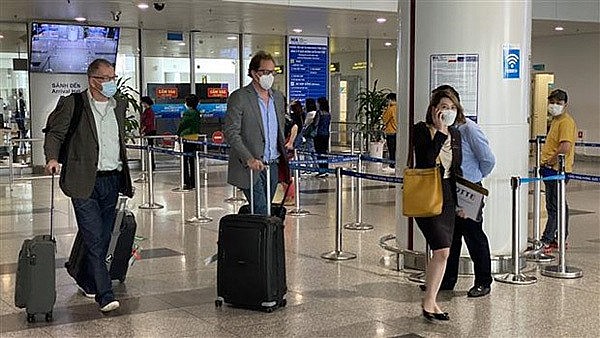 |
| Foreigners at Noi Bai International Airport in Hanoi on March 15. Photo: VNA |
Foreigners entering by air must produce a negative test result for the SARS-CoV-2 virus 72 hours before departure if the RT-PCR/RT-LAMP method is used, or within 24 hours if the rapid antigen test method is used. The results must then be certified by the competent authorities of the country performing the test.
A similar policy also applies to people entering by land and waterways, according to VOV.
In the event that a visitor has no a negative test result, a rapid test must be performed within the first 24 hours from their time of entry. If the test proves to be negative, then the visitor will be permitted to leave their accommodation. If the test comes back positive, they must immediately report to local health authorities for further instructions on timely handling.
Children under the age of two are allowed to enter without any test and can participate in outdoor activities with their parents and relatives.
Visitors must make medical declarations at the border and they must also use the medical declaration application (PC-COVID) during their stay in the country.
Vietnam officially reopened its borders to international tourism on March 15. However, travel firms were worried that it would be difficult for the country to attract foreign visitors unless Covid-19 regulations, including those on medical isolation and testing, were reviewed and revised.
Travel firms argued that it is unfair if vaccinated foreign visitors are required to undergo medical isolation at their place of accommodation for a certain period of time, particularly while vaccinated domestic travelers are allowed to travel freely without any obstacles.
During a meeting held with foreign ambassadors and various representatives of travel businesses in Hanoi on March 15, Deputy Prime Minister Vu Duc Dam affirmed that foreign visitors would be treated the same as domestic visitors upon arrival.
He also requested that relevant ministries and agencies continue to receive opinions from domestic firms and localities regarding the reopening policy, including expanding visa-free markets, removing restrictions on electronic visas, and extending visitors’ stay.
Vietnam calls for dialogues at UNESCO’s session on Ukraine crisis
Vietnam calls for dialogues at UNESCO’s session on Ukraine crisis
The ambassador expressed her concern over the ongoing armed conflict in Ukraine, saying it is an urgent need to exercise restraint and stop using force to avoid causing more casualties and losses to civilians.
She also emphasised the need to ensure security and safety for civilian facilities such as schools, memorial sites, and culture, information and communication establishment in accordance with international humanitarian law.
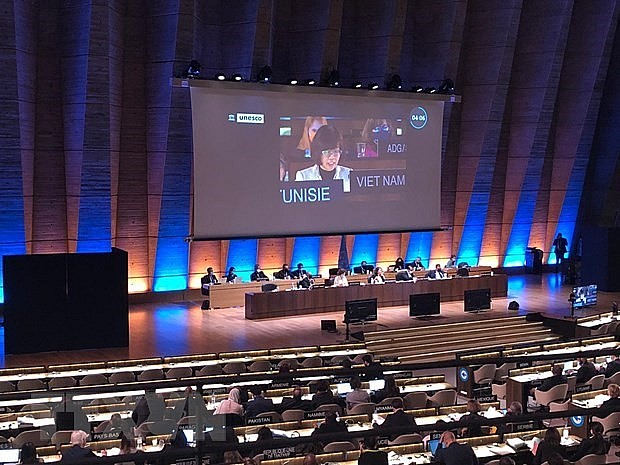 |
| Ambassador Le Thi Hong Van, Permanent Representative of Vietnam to UNESCO, speaks at the session. Photo: UNESCO/VNA |
Van called for the observance of the UN Charter, especially the principles on respecting independence, sovereignty and territorial integrity of countries, not intervening in each other’s internal affairs, not using or threatening to use force in international relations, and addressing disputes by peaceful measures.
Vietnam appeals to relevant sides to de-escalate tensions and resume dialogues and negotiations via all channels to reach long-term solutions in conformity with international law, she noted.
The ambassador continued to say that Vietnam calls for the international community to further support and facilitate dialogues between parties, and increase humanitarian aid to civilians, VNA reported.
It is necessary to ensure safety and security, and facilitate the evacuation of foreign nationals in Ukraine, including Vietnamese, without any discrimination, Van said.
The ambassador proposed UNESCO carry forward its role in promoting humanistic efforts to build a world of peace, sustainability and self-reliance.
At the end of the session, the UNESCO Executive Board issued a resolution, calling on relevant sides to end the war, and UNESCO and its member countries to roll out a relief aid programme for Ukraine.
This is the seventh special session during UNESCO's 75 years of operation, held at the request of 19 members of the board.
Hanoi lifts 9pm ban on dine-in food, beverage venues
Hanoi's authorities have allowed dine-in food and beverage venues to operate as normal, lifting the requirement to close before 9pm which has been enforced for months to curb the spread of the Covid-19 pandemic.
Hanoi's authorities have allowed dine-in food and beverage venues to operate as normal, lifting the requirement to close before 9pm which has been enforced for months to curb the spread of the Covid-19 pandemic.
The venues still need to observe Covid-19 preventive measures set out by health authorities.
The move is part of the capital city’s plans for safe and flexible adaptation and effective control of Covid-19 and reopening tourism. It was signed into effect by Chairman of the municipal People’s Committee Chu Ngoc Anh on March 15.
The city also requested districts and townships not to drop the guard against coronavirus and continue strictly enforcing Covid-19 rules, including the 5K message.
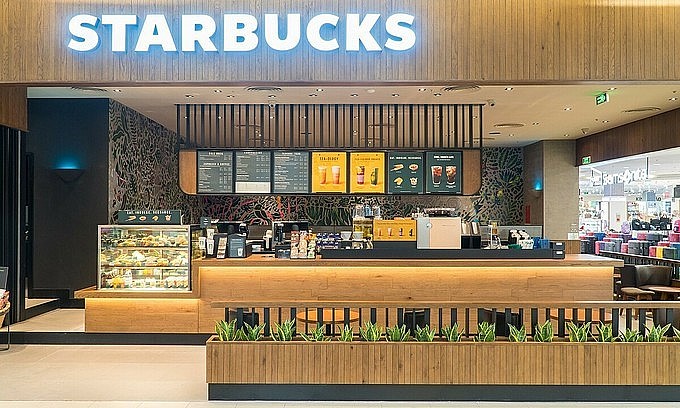 |
| A Starbucks outlet. Photo: Starbucks Vietnam. |
The restrictions were dropped as the capital city continues to lead the country in daily new Covid-19 cases, but with an extremely high vaccination rate. Over 99.6 percent of the population aged 12 years and older have been fully vaccinated, while 80 percent of adults have received booster shots.
Deaths and hospitalisations from the virus are also under control.
Hanoi also wants localities to complete a booster dose campaign for adults within March 2022, while attention will be focused on high-risk groups such as the elderly and pregnant women.
The city’s leaders also urge people who have developed suspect symptoms (fever, coughing, breathing difficulties, loss of taste and smell, etc.) not to participate in public activities. The number of attendees to busy events like weddings and funerals must remain limited, VNN reported.
The People’s Committee enables schools to go ahead with in-person learning plans while the highest safety must be guaranteed for both students and teachers.
They must also regularly update information and regulations on Covid-19 in schools issued by the Ministry of Health and the Ministry of Education and Training and guiding documents of the city, as well as closely follow the developments of the virus outbreak and promptly deal with any outbreaks.
Vietnam to build third oil refinery to meet domestic demand
Vietnam will build another oil refinery, the third of its kind, to ensure a sufficient supply of petroleum products for local consumption, said Deputy Prime Minister Le Van Thanh.
The new plant is set to be built in the southern city of Vung Tau with a design capacity of 10 million m3 per annum.
Addressing legislators at the ongoing session of the National Assembly Standing Committee on March 16, Thanh revealed the Government has directed the Vietnam Oil and Gas Group to draft the investment project.
“If we have an additional 10 million m3 of petroleum, we will have a total of 23 million m3 on hand to meet the demand for local consumption,” he said, adding the oil group is trying to complete investment procedures in 10 months.
Vietnam currently boasts Dung Quat and Nghi Son oil refineries. However, the Nghi Son plant, the largest at present that supplies one third of the country’s demand, has cut production output to 80% or even to 55% at some point due to financial problems.
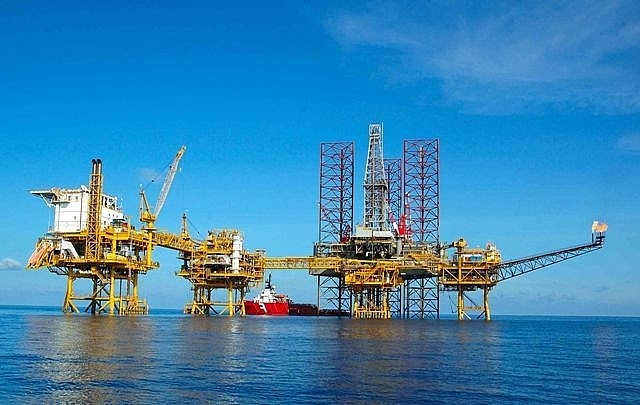 |
| Photo: VNN |
The cutting has led to a shortfall of petrol, forcing key petroleum businesses to increase imports to stabilize the domestic market, while oil prices skyrocketed in the global market recently.
Deputy PM Thanh also affirmed that Vietnam will increase crude oil drilling and exploitation capacity as the currently exploited crude oil only meets 50% of the raw materials needed for petroleum production.
Amidst legislators’ concerns about growing inflationary pressure, Thanh reaffirmed that petrol is a strategic commodity that must be subject to close scrutiny.
“We have to strictly adhere to the market law of supply and demand, but we are trying not to let petroleum products affect production and inflation,” he said.
According to the Deputy PM, the Government has decided to use the price stabilization fund and reduce fees to lower retail petrol and oil prices. It has also approved the Ministry of Finance’s proposal to cut the environmental protection tax by half, and the proposal has been submitted to the National Assembly Standing Committee for approval, cited VOV.
“If global oil prices keep rising, the Government will continue to adopt new policies to ensure stable prices,” he stressed.
Retail petrol prices hit all-time highs of VND29,824/litre for RON95-III and VND28,985/litre for E5RON92 after the government raised domestic petrol prices by an additional VND3,000/litre on March 11.
Earlier in the morning, Industry and Trade Minister Nguyen Hong Dien took the floor, answering legislators’ questions relating to petrol and oil prices among other things. He affirmed that the ministry will work hard to ensure a sufficient fuel supply for local consumption.
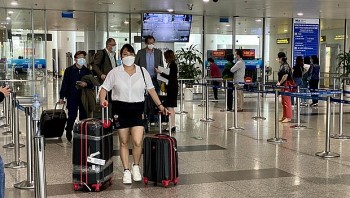 | Vietnam News Today (Mar. 16): Vietnam Fully Reopens Borders to Tourists After Pandemic Hiatus Vietnam News Today (Mar. 16): Covid-19 infection count sharply rises to over 175,000; Vietnam fully reopens borders to tourists after pandemic hiatus; Vietnam to triple ... |
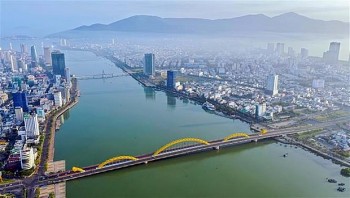 | Vietnam News Today (Mar. 15): Vietnamese Tourism Eager to Welcome Foreign Visitors Vietnam News Today (Mar. 15): Covid-19: Daily count falls slightly to more than 161,000 in Vietnam; Vietnamese tourism eager to welcome foreign visitors; Hanoi to ... |
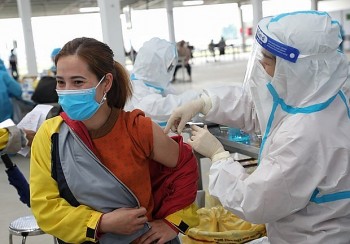 | Vietnam News Today (Mar. 14): Vietnam Aims to Complete Booster Shots in Q1 Vietnam News Today (Mar. 14): Nearly 600 more Vietnamese fleeing Ukraine repatriated; Improving business environment, the key to economic growth; Vietnam aims to complete booster ... |
In topics
 National
National
Vietnam News Today (Jun. 4): Vietnam - Promising Candidate for Southeast Asia’s Next Powerhouse
 National
National
Vietnam News Today (Jun. 3): PM Pham Minh Chinh to Attend UN Ocean Conference, Visit Estonia, Sweden
 National
National
Vietnam News Today (Jun. 2): Vietnamese Trade Mission Sounds Out Business Opportunities in United States
 National
National
Vietnam News Today (Jun. 1): Vietnamese, Japanese Firms Foster Partnership
Recommended
 National
National
Vietnam News Today (Jun. 5): PM sets off for attendance at UNOC 3 in France, official visits to Estonia, Sweden
 National
National
Shangri-La Dialogue 22: Vietnam Highlights Some Issues of Ensuring Stability in a Competitive World
 National
National
Vietnam News Today (May 31): Vietnam Strongly Supports Laos’s National Development
 National
National
Vietnam News Today (May 30): Vietnam, Venezuela Reinforce Ties Through People-to-people Diplomacy
Popular article
 National
National
Vietnam News Today (Jun. 4): Vietnam - Promising Candidate for Southeast Asia’s Next Powerhouse
 National
National
Vietnam News Today (Jun. 2): Vietnamese Trade Mission Sounds Out Business Opportunities in United States
 National
National
Vietnam News Today (Jun. 1): Vietnamese, Japanese Firms Foster Partnership
 National
National




